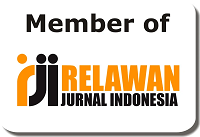Analisa Predictive Berbasis Supervised Machine Learning Terhadap Kerusakan Peralatan Pembangkit
DOI:
https://doi.org/10.31963/elekterika.v6i2.3690Abstract
Predictive maintenance is a treatment for the actual operation of the equipment to optimize the company's operations. The output of predictive program maintenance is data, this treatment includes the type of "condition based maintenance" where changes in the condition of the machine or equipment are detected so that proactive actions are taken before the occurrence of machine damage. The K-nearest Neighbor (K-NN) algorithm is a simple supervised machine learning algorithm that is used to solve problems based on classification and regression. K-NN works by finding the query distance and all database examples, selecting a certain number of examples (K) adjacent to the query, then selecting the frequent label (in classification) or the average label (in regression). The purpose of this algorithm is to classify new object conditions based on attributes and samples from the training database. So that a predictive analysis is carried out on the damage to generating equipment using the machine learning application method of the Nearest Neighbor type or the classification of conditions used to predict the age or condition of an equipment by modeling according to the standard Operation & Maintenance of equipment. By doing predictive analysis, maintenance will lead to condition based maintenance so that the KPI (Key Performance Indicator) of operating performance in the form of increasing values, such as Capacity Factor (CF), Equivalent Availbility Factor (EAF) becomes optimal and prevents the generator from tripping suddenly. which is called sudden outage frequency (SdOF), as well as more efficient maintenance costs.References
Yong Xua,, Zhaohui Lib , Xide Laic,2012,.Dynamic model for hydro-turbine generatorunits based on a database method for guidebearings
Erwin Rarianto, 2016, Analisa Vibrasi Untuk Mendeteksi Kerusakan Pada Turbin Uap UBB Perusahaan III di PT.Petrokimia
Guodong Han1,2, a, Zhangqin Wu3, b, Shuting Wan2,c, Zhanjie Lv1,2,d ,
Ronghai Liu3, e, Jin Wang3,2014.The fault analysis and research of turbine generator sliding bearing oilfilm instability
Sukendi1, Ikhwansyah Isranuri2, Suherman,2015,.Analisa Karakteristik Getaran Dan Machine Learning Untuk Deteksi Dini Kerusakan Bearing
Hosameldin Ahmed,Asoke K.Nandi,2020,.Condition Monitoring with Vibration Signals
Fadhli Hakim Akbar, Titin Isna Oesman, Endang Widuri Asih,2017,.Analisa Kegagalan Turbine Guide Bearing Menggunakan Metode Reliability Centered Maintennnce(RCM).
ISO 19283 (Condition monitoring and diagnostics of machine-hydroelectric generating units)
https://medium.com/@16611077/klasifikasi-k-nearest-neighbors-knn-menggunakan-python-10c64bcb10a1










